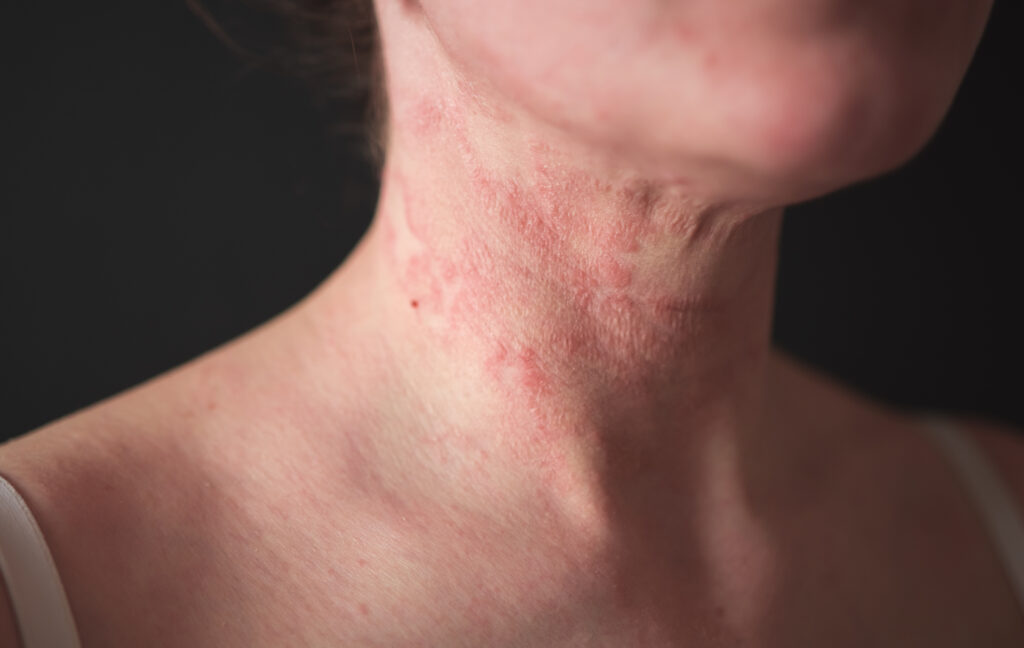What is Atopic Dermatitis?

Have you heard the term atopic dermatitis and wondered what it was? It’s actually the most common form of eczema. Eczema is not one specific disease, but rather an umbrella term encompassing several different skin conditions. Atopic dermatitis is a chronic condition that begins in childhood and can flare up throughout adulthood. Let’s talk about the symptoms, treatment, and prognosis if you suffer from atopic dermatitis.
Symptoms of Atopic Dermatitis
Like all types of eczema, atopic dermatitis causes symptoms like scaly, dry, red rashes on the skin’s surface. These rashes make the skin extremely itchy, and scratching it can lead to swelling, cracking, crusting, scaling, and weeping clear fluids. Atopic dermatitis is common, and it is a disease that can subside and then re-emerge, in periods of time called flares. After a flare, the skin improves or may even clear up entirely. These times of improvement are called remissions. Atopic dermatitis is very uncomfortable, and it looks bad, but it’s not contagious.
What causes atopic dermatitis?
The cause of atopic dermatitis is unclear, but genes, the immune system, and the environment are all contributing factors. This disease often begins during infancy or childhood, and some children outgrow it by the teenaged years. However, some people deal with atopic dermatitis for their entire lives, and some people develop it adulthood. It is more common in non-Hispanic black children, and women and girls are more likely to develop it. The risk of dermatitis is higher for people with a family history of the disease, or of hay fever or asthma. Food allergies can contribute to atopic dermatitis, especially allergies to peanuts, tree nuts, soy, cow’s milk, wheat, shellfish, and seafood.
How is atopic dermatitis treated?
There is no cure for atopic dermatitis, but there are several medications and therapies that can help you to manage it. These include:
- Topical steroids
- Oral steroids
- Antibiotics, antivirals, and antifungals
- Wet dressings
- Light therapy
- New, FDA-approved medications
You can also manage your own symptoms by moisturizing, using anti-itch creams, and refraining from scratching. Allergy or antihistamines can help, and so can taking a bath with colloidal oatmeal. Wear comfortable clothing that won’t make itching worse, use mild, unscented soaps, and find ways to reduce your stress. It can also be helpful to use a humidifier, to prevent your environment from becoming too dry. While some people live with atopic dermatitis for their entire lives, managing it on your own and working with a doctor can help reduce the occurrence and severity of flares.
If you’re looking for a dermatologist to help you manage your atopic dermatitis, Swinyer-Woseth Dermatology is committed to providing superior, professional hair and skin care in a manner that’s practical, efficient, and compassionate. With over 30 years of experience providing dermatological services in Salt Lake City, we provide a variety of services, from cosmetic skincare to treatment for skin cancer. Our team of board-certified dermatologists and licensed cosmetic service providers are here to provide you the care you need in a comfortable, professional atmosphere. Call (801) 682-4715 or contact us through our website.
